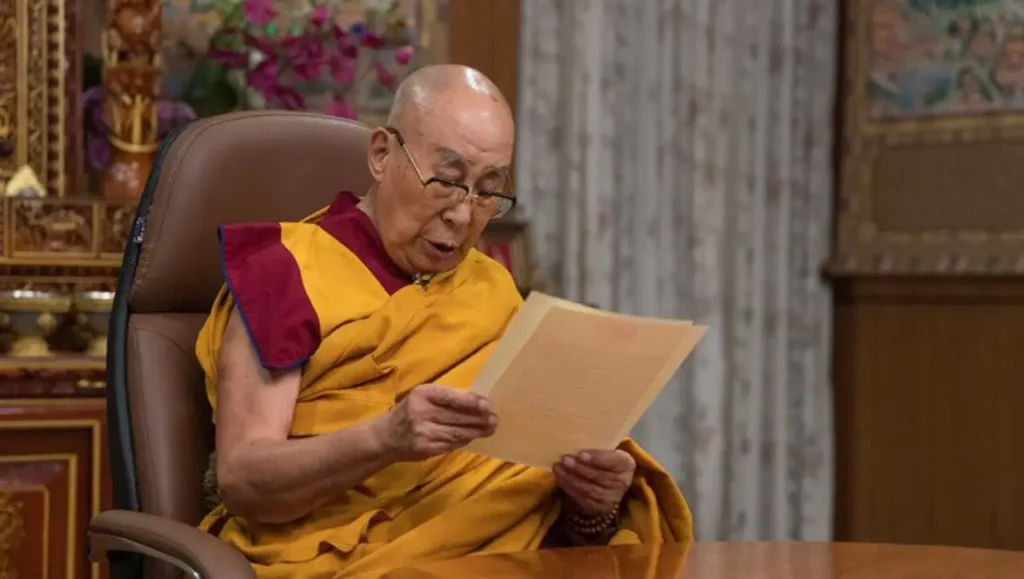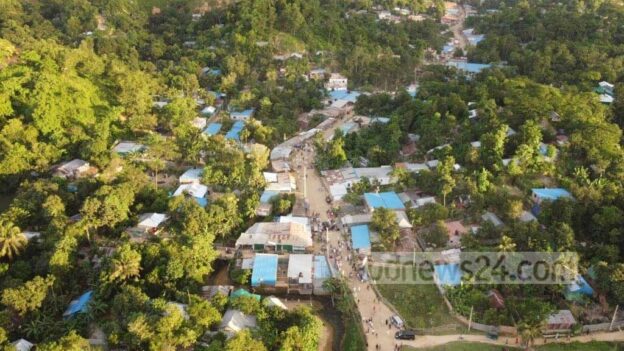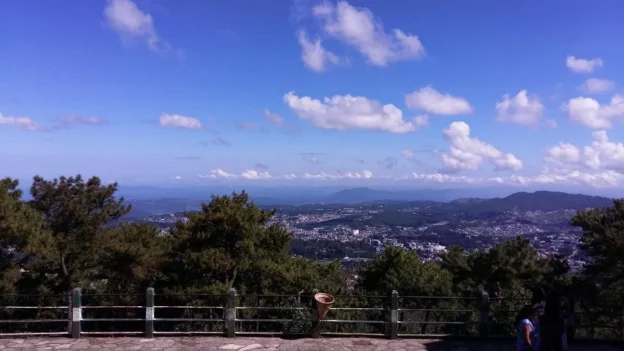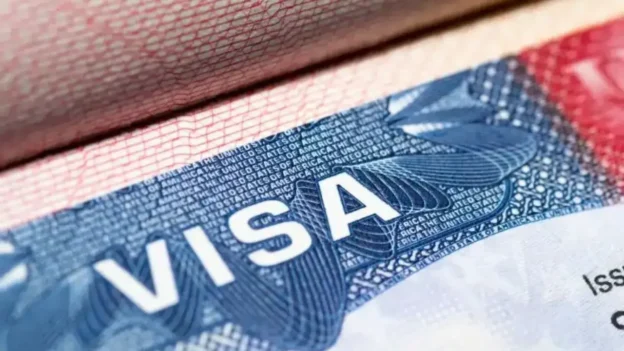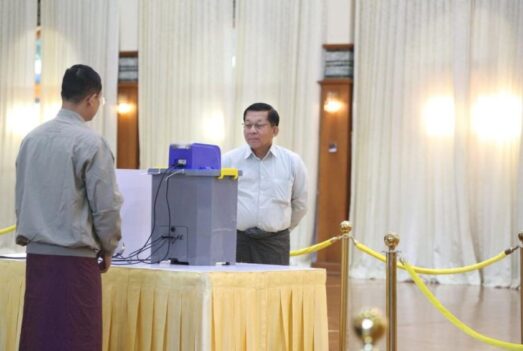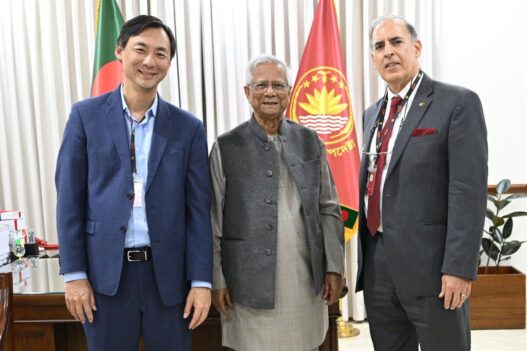The long-anticipated announcement from Dharamshala regarding the reincarnation of the Dalai Lama was conclusively addressed today, as the 14th Dalai Lama, Tenzin Gyatso, issued an official statement affirming the continuation of the Dalai Lama institution. In his declaration, the Dalai Lama made it unequivocally clear that the authority to recognize his future reincarnation lies solely with the Gaden Phodrang Trust—the Office of His Holiness the Dalai Lama—and that no other entity holds the right to interfere in this deeply spiritual matter.
Significantly, leaders from all four principal schools of Tibetan Buddhism—Nyingma, Sakya, Kagyu, and Geluk, traditions over which the Dalai Lama presides—are meeting in Dharamshala from July 2 to July 4, 2025, to deliberate on the issue of reincarnation.
During this assembly, they issued a strong rebuke of China’s repeated attempts to insert itself into the reincarnation process. The assembled leaders stated emphatically that the recognition of the Dalai Lama’s reincarnation is conducted strictly according to the unique traditions of Tibetan Buddhism. They further declared, “We not only strongly condemn the People’s Republic of China’s usage of the reincarnation subject for their political gain, but will never accept it.”
The Dalai Lama’s statement also reflects the wide support he has received from around the world—most notably from people inside China as well as Tibetans throughout Tibet. In his statement, he said, “although there has been no public discussion on this issue in recent years over the last 14 years leaders of Tibet’s spiritual traditions, members of the Tibetan Parliament in Exile, participants in a Special General Body Meeting, members of the Central Tibetan Administration, NGOs, Buddhists from the Himalayan region, Mongolia, Buddhist republics of the Russian Federation and Buddhists in Asia including mainland China, have written to me with reasons, earnestly requesting that the institution of the Dalai Lama continue. In particular, I have received messages through various channels from Tibetans in Tibet making the same appeal.”
This renewed affirmation comes at a critical moment, as global concerns over cultural autonomy and religious freedom intensify. The Dalai Lama’s decisive statement carries both historic and strategic implications for the future of Tibet and the global Tibetan Buddhist community. By affirming that only the Gaden Phodrang Trust and Tibetan Buddhist leaders can recognize his reincarnation, the Dalai Lama not only pre-empts Beijing’s persistent efforts to appropriate Tibetan religious authority but also reinforces the agency and unity of the Tibetan people.
This move draws a clear line in the sand—defending religious autonomy, reaffirming the authenticity of the Tibetan tradition, and providing clarity for Tibetans inside and outside Tibet who have long feared the manipulation of this process for political gain. As Beijing continues to assert its claims over Tibetan Buddhism, this consensus marks a rare, unified response from the highest levels of Tibetan religious and political life. The Dalai Lama’s statement is more than a doctrinal or procedural clarification; it is a powerful assertion of Tibetan self-determination at a time of rising global concern about cultural and religious freedoms.
In his July statement, the Dalai Lama again referenced his earlier pronouncements, reaffirming his commitment to broad consultation on the matter. He said, “I made a statement to fellow Tibetans in and outside Tibet, followers of Tibetan Buddhism, and those who have a connection with Tibet and Tibetans, regarding whether the institution of the Dalai Lama should continue.” He reiterated, “As far back as 1969, I made clear that concerned people should decide whether the Dalai Lama’s reincarnations should continue in the future.”
He also reiterated what he had stated earlier: “When I am about ninety I will consult the high Lamas of the Tibetan Buddhist traditions, the Tibetan public, and other concerned people who follow Tibetan Buddhism, to re-evaluate whether or not the institution of the Dalai Lama should continue.”
It was in his 2011 pronouncement that the Dalai Lama most directly drew attention to Beijing’s intentions regarding the reincarnation process, noting, “They are waiting for my death and will recognize a Fifteenth Dalai Lama of their choice. It is clear from their recent rules and regulations and subsequent declarations that they have a detailed strategy to deceive Tibetans, followers of the Tibetan Buddhist tradition and the world community.”
The heads of all four major schools of Tibetan Buddhism, gathered in Dharamshala, publicly reiterated the Dalai Lama’s statement from September 24, 2011, delivered during the 11th Tibetan Religious Conference. They recalled his words: “When I reach the age of Je Gedun Drup, I will consult the high lamas of the Tibetan Buddhist Traditions, the Tibetan public, and other concerned people who follow Tibetan Buddhism, and re-evaluate whether the Dalai Lama’s reincarnations should continue or not. On that basis, we will take a decision.”
The Dalai Lama underscored that the procedures for recognizing his future reincarnation were definitively set forth in the 2011 statement. This statement stipulates that the exclusive responsibility rests with the Gaden Phodrang Trust. The Trust, he specified, should consult with the heads of the various Tibetan Buddhist traditions and with the reliable, oath-bound Dharma Protectors inseparably connected to the Dalai Lama lineage. “They should accordingly carry out the procedures of search and recognition in accordance with past tradition,” he asserted.
The participants of the 15th Tibetan Religious Conference, guided by esteemed heads and realized masters from the diverse schools of Tibetan Buddhism, unanimously resolved to support His Holiness the Dalai Lama’s authoritative pronouncements on this critical subject. They agreed that their unified stance should be disseminated widely, ensuring that the Tibetan people and the world at large are informed.
Meanwhile, the participants of the 15th Tibetan Religious Conference expressed deep gratitude to the Dalai Lama for his “infinite compassion” in acceding to their appeals, particularly regarding the continuation of the Dalai Lama institution and the matter of reincarnation, on the occasion of his 90th birthday.
Tibetans both within Tibet and in exile have pledged to maintain national unity and solidarity. They have vowed to continue their just struggle for Tibet’s cause and to extend wholehearted cooperation towards the fulfilment of His Holiness the Dalai Lama’s noble aspirations and wishes.

